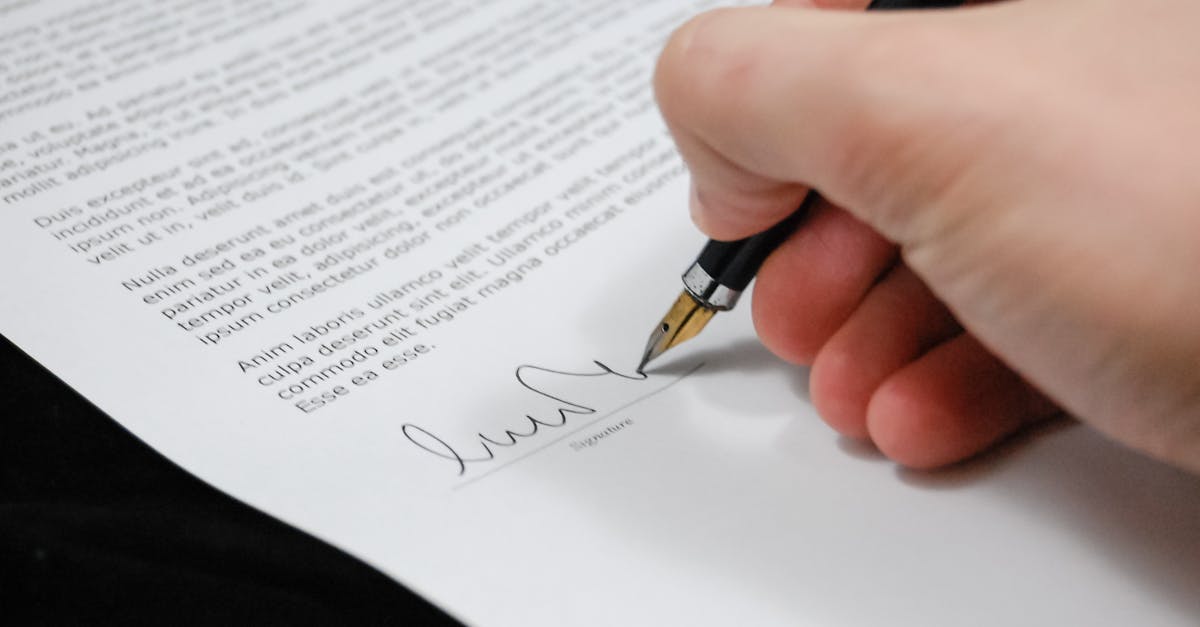
Employment and Career Implications
Bankruptcy Law Services Austin notes that filing for Chapter 13 bankruptcy can have significant ramifications on an individual's employment and career trajectory. Employers may view a bankruptcy filing as a red flag, signaling potential financial instability and mismanagement. This perception could lead to a lack of trust from employers, potentially hindering career advancement opportunities and even jeopardizing current employment status. In fields that require a high level of financial responsibility, such as finance or accounting, a Chapter 13 bankruptcy filing could raise concerns about an individual's ability to handle the financial aspects of their role effectively.
Additionally, individuals who have undergone Chapter 13 bankruptcy may also face challenges when seeking new employment. Some employers conduct credit checks as part of their vetting process, and a bankruptcy filing could serve as a strike against a candidate, even if their qualifications are strong. This could limit the pool of job opportunities available to individuals with a Chapter 13 bankruptcy on their record, making it more difficult to secure meaningful employment and potentially prolonging the financial recovery process.
Professional Reputation Risk
Professional reputation is a critical asset in any career field. When an individual files for Chapter 13 bankruptcy, it can potentially tarnish their professional standing and credibility. Despite the protection afforded by bankruptcy laws, the stigma associated with financial insolvency may raise doubts about one's ability to manage responsibilities effectively. Bankruptcy Law Services Austin emphasizes the importance of understanding the long-term consequences on professional relationships and career growth.
Employers and colleagues may view a Chapter 13 bankruptcy filing as a red flag, signaling financial instability or poor decision-making. This perception could hinder opportunities for promotions, raises, or even future job prospects. Bankruptcy Law Services Austin urges individuals considering this route to carefully evaluate the impact on their professional reputation and work closely with experienced professionals to mitigate any potential fallout.
Difficulty in Obtaining New Credit
Filing for chapter 13 bankruptcy can significantly hinder an individual's ability to obtain new credit in the future. Lenders are often wary of extending credit to individuals who have gone through bankruptcy proceedings, as they are considered high-risk borrowers due to their history of financial distress. Bankruptcy Law Services Austin highlights that even if individuals are able to secure new lines of credit, they may encounter higher interest rates and less favorable terms than those with clean credit histories.
Individuals who have a chapter 13 bankruptcy on their record may find it challenging to access various financial products such as loans and credit cards. Many traditional lenders may be reluctant to approve loan applications from individuals with a history of bankruptcy, forcing them to explore alternative borrowing options with higher interest rates and stringent borrowing requirements. This limited access to credit can pose significant obstacles for individuals seeking to rebuild their financial stability after going through the bankruptcy process.
Limited Access to Loans and Credit Cards
Limited access to loans and credit cards is a major drawback of filing for Chapter 13 bankruptcy. Following a bankruptcy filing, individuals often struggle to secure new lines of credit due to the high-risk label attached to them. Bankruptcy Law Services Austin notes that lenders and credit card companies are cautious about extending credit to individuals who have gone through bankruptcy, as there is a perceived risk of default on payments.
Individuals who have filed for Chapter 13 bankruptcy may find it challenging to obtain loans with favorable terms and conditions. Even if they are able to secure credit, they often face higher interest rates and stricter repayment terms. This limited access to credit can hinder individuals from making significant purchases or investments, impacting their financial stability in the long term.
Public Record of Bankruptcy Filing
Filing for Chapter 13 bankruptcy inevitably leads to a public record of the proceedings. This means that the details of the filing, including financial information and the specifics of the repayment plan, become accessible to the public. Anyone, including employers, potential lenders, landlords, and even acquaintances, can view this information. The public record of a bankruptcy filing can have lasting consequences on an individual's financial reputation and personal life. Bankruptcy Law Services Austin stresses the importance of understanding the ramifications of this public disclosure before pursuing Chapter 13 bankruptcy.
In the realm of personal finance, a public record of bankruptcy filing can quickly erode trust and credibility. Potential employers and business partners may view a bankruptcy filing as a red flag, questioning an individual's financial responsibility and decision-making skills. The stigma associated with bankruptcy can linger long after the debts have been restructured or discharged, potentially impacting future job prospects and professional relationships. It is crucial for individuals considering Chapter 13 bankruptcy to weigh the long-term implications of a public record and seek guidance from professionals like Bankruptcy Law Services Austin to navigate this complex landscape.
Impact on Personal Reputation
Impact on Personal Reputation
Filing for Chapter 13 bankruptcy can have significant repercussions on an individual's personal reputation. It is essential to consider the public perception of bankruptcy and how it may impact relationships with employers, colleagues, and the community at large. Bankruptcy Law Services Austin notes that individuals who file for bankruptcy may face stigma and judgment from others, which could lead to feelings of embarrassment and shame. This negative perception of financial struggle may affect how individuals are viewed in both personal and professional circles.
Additionally, a public record of the bankruptcy filing is created, making the information accessible to anyone who chooses to search for it. This can potentially damage personal relationships and trust, as friends, family, and acquaintances may view the individual differently upon discovering their financial situation. Bankruptcy Law Services Austin highlights the importance of understanding the long-term consequences of a Chapter 13 bankruptcy filing, as it can impact an individual's reputation for years to come.
FAQS
What are the employment and career implications of filing for Chapter 13 bankruptcy?
Filing for Chapter 13 bankruptcy can have negative implications on your employment and career prospects. Employers may view it as a red flag, affecting your chances of getting hired or promoted.
How does Chapter 13 bankruptcy impact professional reputation?
Chapter 13 bankruptcy can pose a risk to your professional reputation as it may be seen as a sign of financial irresponsibility. Clients and business partners may question your ability to manage finances effectively.
Will filing for Chapter 13 bankruptcy make it difficult to obtain new credit?
Yes, filing for Chapter 13 bankruptcy can make it challenging to obtain new credit. Lenders may view you as a high-risk borrower and offer credit with unfavorable terms or high interest rates.
What are the limitations on access to loans and credit cards after filing for Chapter 13 bankruptcy?
After filing for Chapter 13 bankruptcy, you may have limited access to loans and credit cards. Financial institutions may be hesitant to extend credit to individuals with a recent bankruptcy on their record.
Is Chapter 13 bankruptcy a matter of public record?
Yes, Chapter 13 bankruptcy filings are a matter of public record. This means that anyone, including potential employers or creditors, can access this information, potentially impacting your personal and professional reputation.




